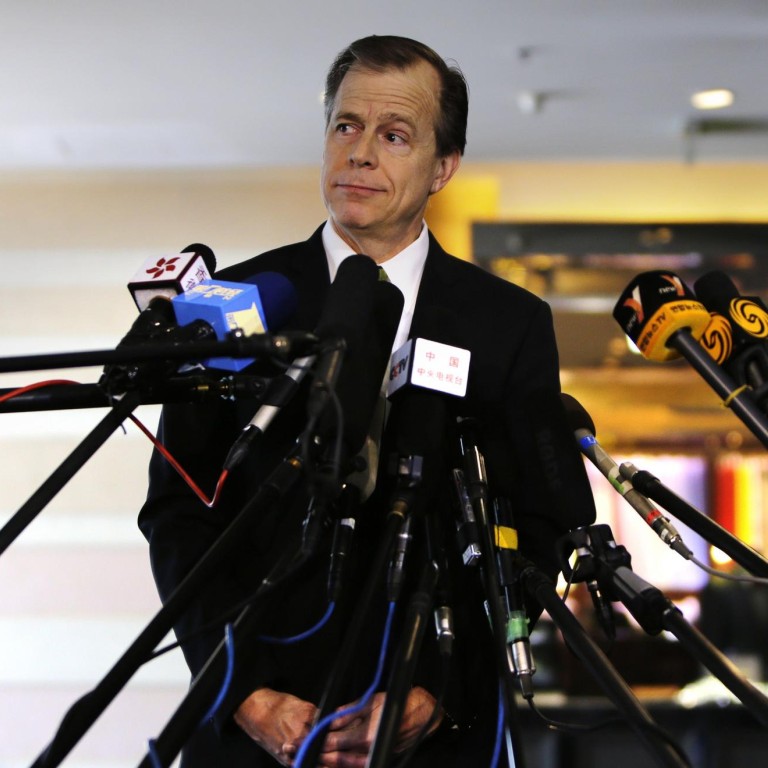
US envoy rules out six-way talks on North Korean nuclear programme
Beijing, Washington still split on approach to weapons dispute after visiting diplomat cites no meaningful steps by Pyongyang
A senior United States diplomat ruled out the quick resumption of the six-nation talks on North Korea yesterday, citing no sign from Pyongyang that it intends to halt its nuclear programme.
Glyn Davies, the US special representative for North Korea, said after meeting with his Chinese counterpart, Wu Dawei , and Deputy Foreign Minister Zhang Yesui , that both China and the US "share an interest" in resuming the talks. But he said Pyongyang has to show its commitment to end nuclear proliferation.
"The principal obstacle has been the lack of not just interest, but meaningful steps by North Korea to demonstrate that they understand that it has to move up to its obligations and commitments," Davies told reporters. "We call on North Korea to take seriously its obligations."
The remarks appeared to show that Washington and Beijing remain divided over how to deal with Pyongyang, even though both have demanded the denuclearisation of the Korean peninsula.
Beijing has long called for the resumption of the six-party talks, which also include Japan, Russia and South Korea, without preconditions to resolve North Korea's nuclear issue. But Washington remains sceptical of Pyongyang's desire to dismantle its weapons programme.
Zhang Baohui , a security specialist at Lingnan University in Hong Kong, said the differences between the US and China on how to handle Pyongyang would be difficult to resolve.
"Beijing wants to resume the six-party talks to show its geopolitical influence in the region," he said. "But for Washington and other nations the talks are not effective because they have not deterred Pyongyang from launching nuclear tests."
Davies' talks with Chinese officials came after Pyongyang said it wants to improve relations with South Korea and agreed to resume reunions of families separated by the Korean war. But it has also demanded that Washington and Seoul cancel military drills to be held in late February.
US Deputy Secretary of State William Burns and the US Assistant Secretary of State for East Asian and Pacific Affairs Daniel Russel were in Beijing last week for talks that also touched on North Korea. The country's neighbours have expressed concerns about the regime's stability after the execution of North Korean leader Kim Jong-un's uncle Jang Song-thaek last month.
"The recent development in Pyongyang has raised uncertainty, but China and the US both want the political situation there to remain stable," said professor Zhang Huizhi at Jilin University's Northeast Research Centre. "Both nations are looking for ways to maintain the basic stability of Pyongyang."
Zhang Baohui said ties with Pyongyang had become a real dilemma for Beijing. "It is a difficult issue because, if Pyongyang still proceeded with nuclear tests in the future even after China had stepped up pressure, it would mean that China's influence over the regime was fading," he said.

